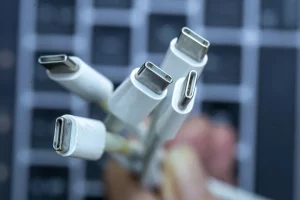Once again, Google introduces a new Tensor system-on-a-chip (SoC) with the latest Pixel phones. The Pixel 8 and Pixel 8 Pro were officially unveiled at the Made by Google event on Wednesday, featuring the upgraded Tensor G3 SoC. Following the initial Tensor hardware’s debut with the Pixel 6, Google seems to be placing even more emphasis on AI performance this time.
Google claims that the Tensor G3 enables the Pixel 8 and Pixel 8 Pro to run over twice as many on-device machine learning tasks compared to the Pixel 8. Moreover, the largest machine learning model on the Pixel 8 is reportedly ten times more complex than its predecessor on the Pixel 6. These advancements highlight both Google’s engineering prowess and the tech industry’s race to lead in the field of AI.
While the Tensor G3 chip is faster than the G2, its real value lies in the new features it brings. This year, it promises improved Call Screen functionality for spam call filtering. Google also asserts that Tensor G3 enhances audio and video quality, particularly for the Pixel’s Clear Calling feature. Users can utilize the “Audio Magic Eraser” to eliminate unwanted sounds from their videos, similar to how the original Magic Eraser feature enhances photo backgrounds.
Thanks to Tensor G3, Google can extend screen reading capabilities across the Pixel 8 user experience. A long press on the power button activates screen reading, which proves useful for reading lengthy articles on the go. Additionally, users gain playback controls for speed adjustment and language selection during playback.
While Google hasn’t disclosed extensive technical specifications for the Tensor G3, recent benchmark leaks suggest it features a 9-core CPU with a Cortex-X3 core running at 2.91GHz. (This Arm core is also found in the recent Snapdragon 8 Gen 2.) The G3 includes 12GB of RAM and a Mali-G715 GPU, and its efficiency is expected to surpass that of the Tensor G2 due to its utilization of Samsung’s newer 4nm manufacturing process.
Google initially propelled the Pixel phones with a focus on AI, which led to groundbreaking features like Night Sight. Now, with the Tensor G3 powering the Pixel 8 and Pixel 8 Pro, Google aims to further extend its AI leadership.




